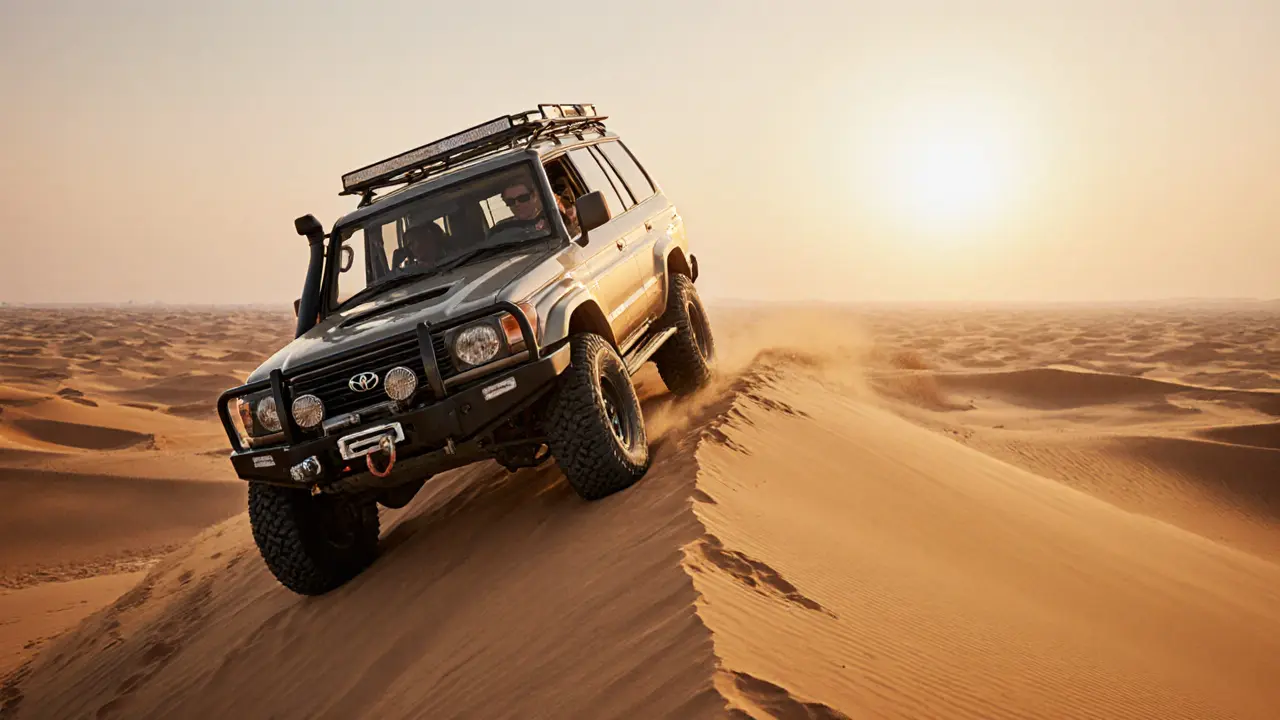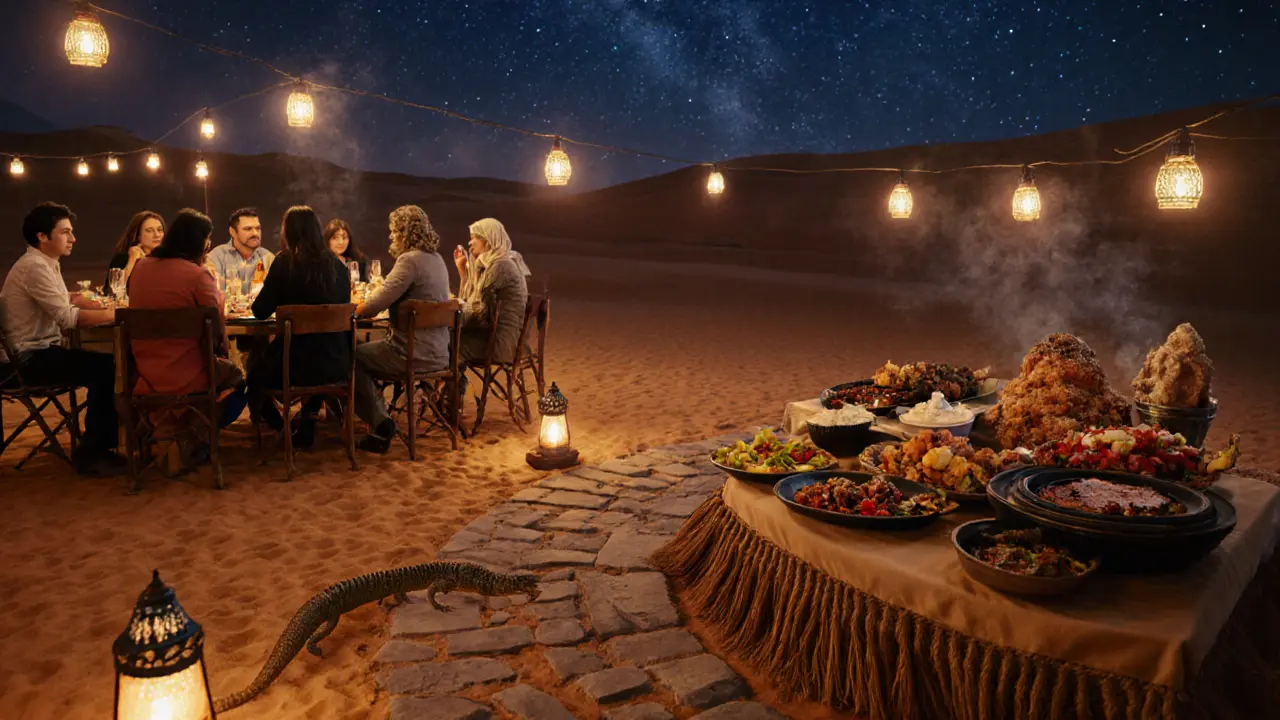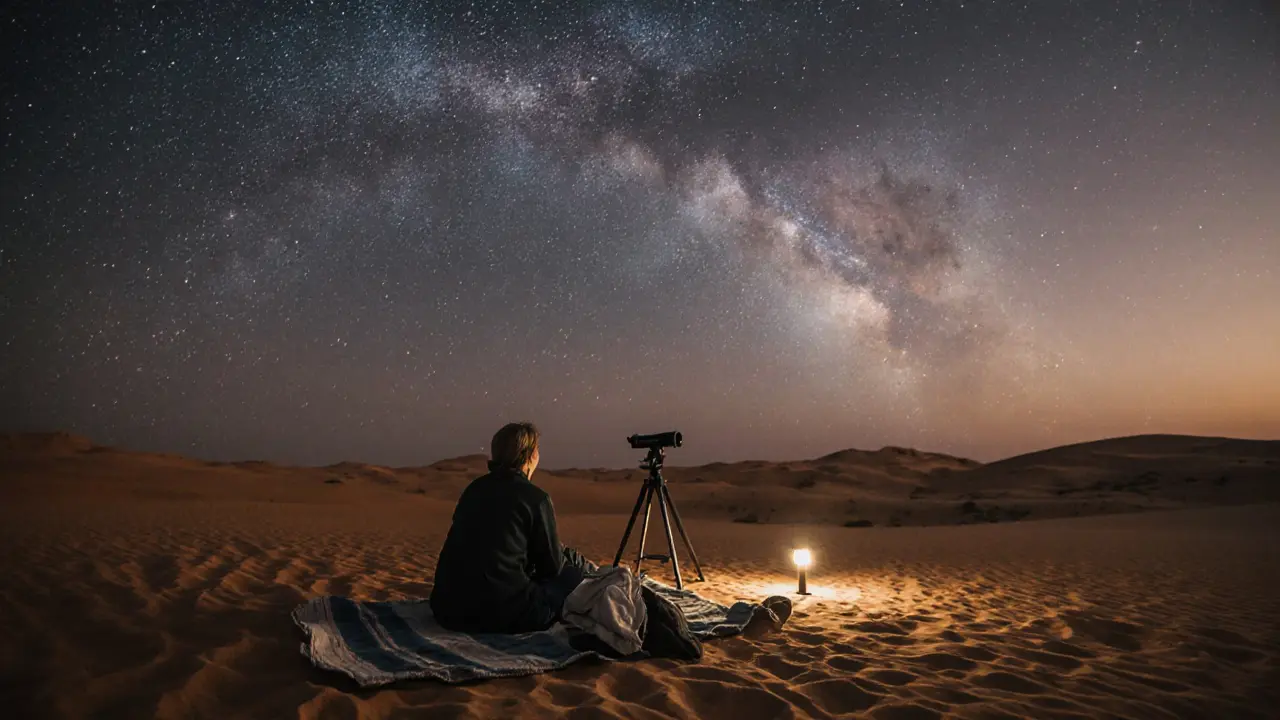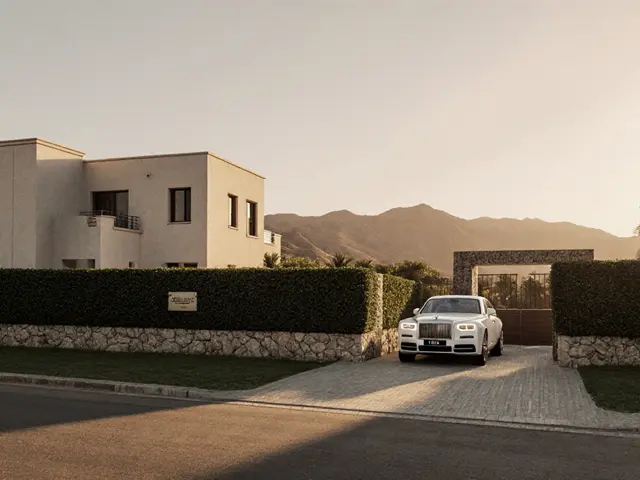
People think desert safaris in Dubai are all about camels, dune bashing, and belly dancing under the stars. But if you’ve ever been told you’ll get stuck in the sand, chased by scorpions, or forced to eat camel meat, you’ve been fed a mix of old rumors and Hollywood fiction. The truth? Most desert safari myths are flat-out wrong-and they’re keeping travelers from having the real experience waiting for them out there.
You won’t get stranded in the dunes
One of the biggest fears people have before a desert safari is getting stuck. You’ve seen the movies: a 4x4 tilts sideways, sand pours in through the windows, and everyone’s yelling for help. Real desert safari operators don’t take risks like that. The vehicles used are modified Land Cruisers or Range Rovers with heavy-duty tires, locking differentials, and winches. Drivers are licensed professionals who’ve spent years navigating these dunes. They know exactly how much tilt is safe before they stop. If a vehicle does get stuck-which happens rarely-it’s fixed in under ten minutes with the tools on board. No one gets left behind. Tour companies are required by Dubai’s tourism board to carry emergency kits, GPS trackers, and satellite phones. You’re not just safe-you’re monitored.
Scorpions and snakes aren’t lurking under every rock
It’s true: the desert has wildlife. But the idea that you’ll step on a scorpion or get bitten by a snake during a safari? Extremely unlikely. Most desert creatures avoid human activity. The tours run during daylight hours or early evening, when temperatures are still high and animals are hiding. Even at the traditional Bedouin-style dinner camp, the ground is swept, tents are sealed, and lighting keeps insects away. You might see a lizard darting across the sand, or a desert fox in the distance-but not a single venomous creature has been reported in over 15 years of organized safaris. If you’re worried, wear closed shoes after sunset. That’s the only real precaution you need.
Camel rides aren’t mandatory-and they’re not for everyone
Every promotional video shows tourists smiling on camels, waving at the sunset. But here’s the thing: camel rides are optional. Many operators now offer them as a short add-on, not a core part of the experience. And for good reason. Camels aren’t gentle pets. They’re large, unpredictable animals with a unique gait that can be uncomfortable, even painful, for people with back issues. Some travelers report sore hips or neck strain after just 10 minutes. If you want to ride, go ahead. But if you’re not into it, you won’t be pressured. You can skip it and still enjoy the same views, the same dinner, and the same cultural shows without ever touching a camel.

The food isn’t all camel meat
Another myth: desert safaris serve only camel burgers and grilled organs. That’s not true. The dinner buffet at most reputable camps includes grilled chicken, lamb kebabs, falafel, hummus, tabbouleh, fresh bread, rice pilaf, and desserts like kunafa and baklava. Vegetarian and vegan options are standard now. Even halal dietary needs are handled without question. The camel meat? It’s usually available as a small tasting portion-like a novelty item on a menu, not the main course. Most guests don’t even try it. And if you’re allergic, vegetarian, or just not curious? Tell your guide. They’ll adjust your plate before you sit down.
You don’t need to wear a headscarf or abaya
Some people think they’ll be asked to cover up to join a desert safari. That’s not true. Dubai is a global city, and desert safaris are designed for international tourists. Women can wear shorts, t-shirts, dresses, or jeans. Men can wear t-shirts and shorts. No one will ask you to change. That said, modest clothing is respectful-and it’s also practical. The sun is intense. Long sleeves and light pants protect you from sunburn and sand. You’ll be more comfortable in loose, breathable fabrics than in tight clothes. But you’re not required to dress like a local. Your outfit won’t get you kicked out of the camp.
Dune bashing isn’t just for adrenaline junkies
Yes, the 4x4s climb steep dunes and drop suddenly. But it’s not a rollercoaster ride designed to scare you. The speed is controlled. The turns are smooth. Most operators offer two levels: “Mild” and “Thrill.” The Mild option is perfect for families, older travelers, or anyone who just wants to enjoy the scenery. The vehicle still goes up and down dunes, but at a slower pace, with less spinning and less bouncing. You can ask for it when you book. And if you feel uncomfortable at any point during the ride, just say so. Drivers are trained to adjust on the fly. You’re not a passenger in a stunt show-you’re a guest in a controlled experience.

The stars aren’t just for photos
Many think the night sky is just a backdrop for Instagram pictures. But the desert sky is one of the clearest on Earth. With no city lights, you can see the Milky Way clearly, sometimes even the Andromeda Galaxy. Most tours now include a short astronomy talk by a guide who points out constellations, planets, and shooting stars. Some even bring telescopes. It’s not a fancy show-it’s quiet, real, and deeply calming. If you’ve never seen the stars without light pollution, this is your chance. Bring a light jacket. The desert gets cold after sunset.
Booking a safari isn’t a gamble
You don’t have to pick a random company off a hotel lobby flyer. There are clear signs of a good operator: they’re licensed by the Dubai Department of Tourism and Commerce Marketing (DTCM), they have visible reviews on Google and TripAdvisor, and they list their vehicle types and safety features on their website. Avoid companies that don’t show photos of their actual vehicles or drivers. Ask if they offer pickup from your hotel-most do. Check if the price includes insurance, water, and a guide. A good tour costs between 120 and 200 AED per person. Anything below 80 AED? That’s usually a red flag. You’re not paying for luxury-you’re paying for safety, reliability, and a real experience.
What most people miss
The best part of a desert safari isn’t the dune bashing or the dinner. It’s the quiet moment right after the sun sets. The sand cools. The wind stills. The camp lights come on. And for a few minutes, you’re alone with the desert. No music, no crowds, just the silence. That’s when you realize why people come back. Not for the thrills. Not for the food. But for the peace.
Is desert safari safe for kids?
Yes, desert safaris are safe for children as young as 2 years old. Most operators offer child seats and have “Mild” dune bashing options. Kids usually love the camel rides and the dinner shows. Bring snacks, sunscreen, and a light jacket for after sunset. Avoid tours that don’t mention family-friendly options.
Can I do a desert safari in the summer?
Yes, but it’s not ideal. Daytime temperatures can hit 45°C (113°F) in July and August. Most tours now run only in the evening, starting after 4 PM. The sand still holds heat, so wear closed shoes. Stay hydrated-water is always provided, but bring your own bottle too. If you’re sensitive to heat, consider visiting between October and April.
Do I need to book in advance?
Yes, especially during holidays and weekends. Popular operators fill up weeks ahead. Booking early gives you choice in timing, group size, and upgrades like private vehicles or extended stays. Last-minute bookings are possible, but you’ll get the leftover slots-often larger groups or later pickup times.
What should I bring on a desert safari?
Sunscreen, sunglasses, a hat, closed-toe shoes, a light jacket for the evening, a phone or camera, and cash for tips. Most camps provide water, blankets, and towels. Don’t bring valuables you can’t afford to lose. Sand gets everywhere.
Are photos included in the tour?
Some operators include a professional photographer who takes candid shots during dune bashing and dinner. Others charge extra for this. Ask before booking. You can always take your own photos, but the lighting is tricky after sunset. If you want high-quality images, pay for the add-on.



